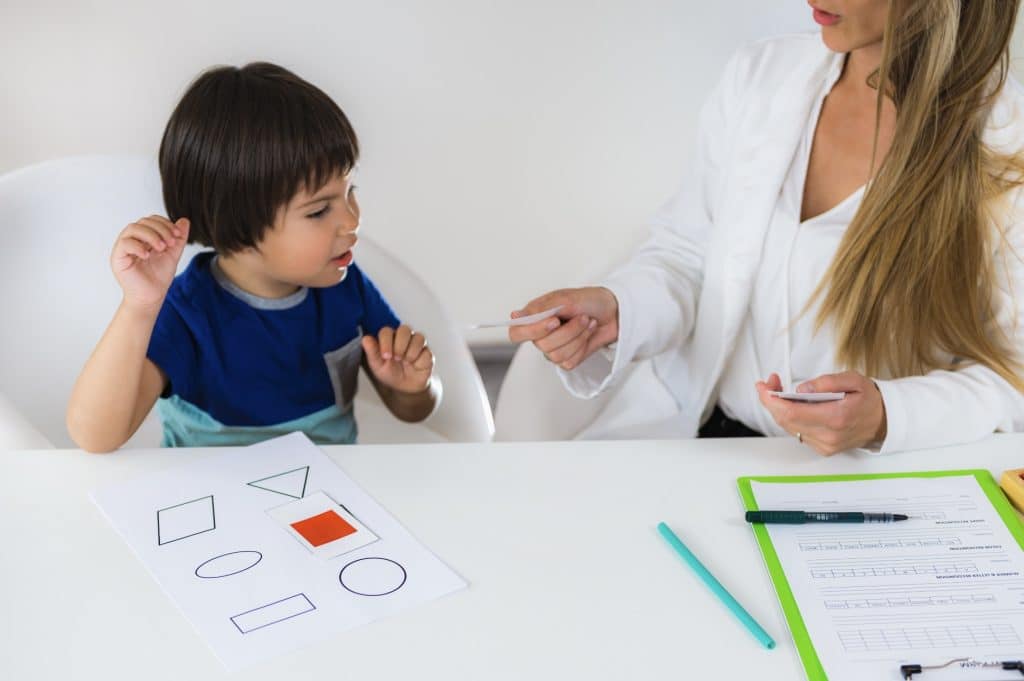Anxiety can make everyday tasks feel overwhelming for children and teens. Many families wonder if ABA Therapy for anxiety can help their child feel calmer, safer, and more confident. The answer is yes—when ABA is used with the right strategies, it can reduce stress, teach emotional coping skills, and support real-life success at home, school, and in the community.
Frances Fishman, Founder of The Play Base and Board Certified Behaviour Analyst, explains, “Anxiety shows up in different ways for every child. When we understand the ‘why’ behind the behaviour, we can teach skills that help kids feel more in control and more supported.”
This guide breaks down how ABA therapy supports anxiety reduction, what families can expect, and why behavioral interventions work so well for emotional growth.
How ABA Therapy Supports Anxiety Reduction | Behavioral Strategies Explained
ABA therapy looks at the whole picture—not just the anxiety itself, but what triggers it and what helps your child feel safe. The goal is to reduce stress and teach skills your child can use in real situations.
ABA therapists help children learn to:
- Identify what makes them feel worried
- Ask for help in healthy ways
- Practice calming tools before anxiety gets too big
- Try new tasks at a pace that feels safe
- Build flexibility for everyday routines
According to Frances Fishman, “We always move at a child’s pace. When children feel supported, they learn new skills faster and gain the confidence they need to try again tomorrow.”
ABA Therapy for Anxiety Symptoms | Building Emotional Coping Skills
ABA therapy teaches coping skills step by step so children can understand and practice them in simple ways. These skills give kids tools they can use anywhere.
Examples include:
- Breathing strategies during stressful moments
- Asking for a break when they feel overwhelmed
- Using visual tools to understand what’s coming next
- Naming their feelings with simple, clear language
- Following a calm-down routine built just for them
These emotional coping skills help children feel more in control, which lowers anxious behaviors over time.
Behavioral Interventions for Anxiety | How ABA Helps Reduce Stress
ABA therapy uses behavioral interventions that make daily life more predictable and manageable for children who experience anxiety. These interventions focus on teaching what to do instead of anxious behaviours.
Common strategies include:
- Breaking big tasks into small steps
- Practicing new skills in low-pressure settings
- Using positive reinforcement to reward bravery
- Preparing children ahead of transitions or changes
- Offering choices so kids feel more in control
These tools help reduce the stress that comes from uncertainty, sensory overload, or fear of new situations.
Can ABA Therapy Help With Anxiety? | A Science-Backed Overview
Research shows that ABA-based strategies help children manage anxiety by teaching them how to understand emotions and respond in healthier ways. ABA doesn’t “push through” anxiety. Instead, it teaches safety, predictability, and resilience.
ABA therapy can help with:
- Social anxiety
- School-related stress
- Separation worry
- Fear of new environments
- Anxiety linked to communication challenges
Frances shares, “When a child learns skills they can use in everyday life, their confidence grows. We want every child to feel proud of themselves, even when the task feels hard.”
ABA Techniques for Anxiety | Step-By-Step Stress Reduction Methods
ABA therapists at The Play Base use gentle, clear teaching methods to help children overcome stress step by step.
These may include:
- Modeling calm behaviour
- Practicing coping strategies during play
- Gradual exposure to difficult tasks
- Visual schedules for predictability
- Teaching children how to pause and check in with their bodies
These stress-reduction methods help children build emotional strength one small success at a time.
Emotional Coping Skills Through ABA | How Therapy Builds Resilience
Resilience is the ability to bounce back from tough moments. ABA builds resilience by helping children learn to:
- Understand their feelings
- Try again after a hard task
- Use coping tools on their own
- Handle surprises with less frustration
- Feel more confident in social situations
As Frances says, “We want children to understand that mistakes are okay. They’re part of learning, and they help us grow.”
ABA for Social Anxiety | Practical Strategies That Improve Confidence
Social anxiety can make peer interactions feel intimidating. ABA therapists use play-based learning to help children build comfort and confidence.
Strategies include:
- Practicing simple social scripts
- Teaching turn-taking and sharing
- Using role-play to prepare for real situations
- Slowly increasing social expectations at a comfortable pace
- Reinforcing brave attempts, not just perfect outcomes
These tools help children feel more ready for birthday parties, school activities, or meeting new peers.
ABA Therapy for Anxiety in Children and Teens | What Families Should Expect
Family involvement is important for long-term success. At The Play Base, parents learn the same tools their child practices in therapy so they can use them during daily routines.
Families can expect:
- A warm, supportive environment
- A personalized plan based on the child’s needs
- Play-based sessions that make learning fun
- Constant communication with the therapist
- Practical tools you can use at home right away
“With the right supports,” Frances says, “families start to see their child grow in ways they never thought possible.”
How Behavioral Intervention Reduces Anxiety | ABA Tools That Work
Behavioral intervention focuses on teaching new skills—not just reducing unwanted behaviour. This helps anxiety decrease naturally as confidence increases.
ABA tools that work well include:
- Calm-down kits
- Visual choices and prompts
- Reward systems for bravery
- Step-by-step exposure plans
- Sensory strategies to help the body regulate
These tools create a sense of safety and predictability, helping anxiety shrink over time.
Ready to Help Your Child Build Calm, Confidence, and Coping Skills?
If you’re looking for ABA therapy for anxiety, The Play Base offers gentle, effective, child-centered support that helps families feel empowered. You can also take the next step with options such as booking an ABA anxiety consultation, starting emotional coping skills therapy, or scheduling a behavioral therapy appointment.
The Play Base team is here to help your child learn skills that last a lifetime. Reach out today to begin your child’s personalized anxiety-support plan.









